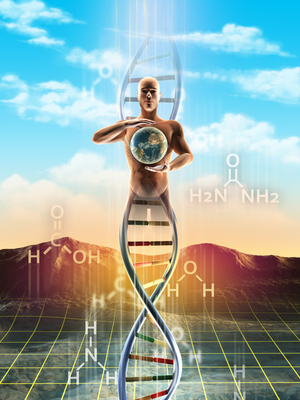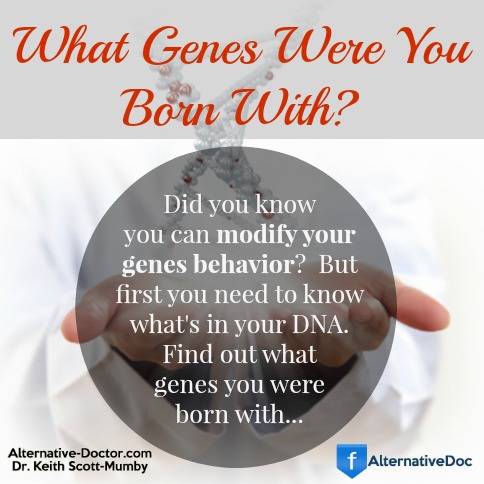Quick Ebola Update
A couple of weeks back I wrote about the Ebola outbreak and how it was mainly a marker for the distressed health condition of the unfortunate victims, rather than a measure of the viciousness of the virus itself. In other words weakened people will have a disastrous experience, strong healthy people will probably fight it off rather easily.
That’s contrary to the hype and junk science that wants you to believe there’s going to be a scary new pandemic and you had all better fling yourselves helplessly into the arms of Big Pharma, the only means of your salvation.
If God is on your side there will be a vaccine made available in the nick of time and you will all be saved… Hallelujah!
If not…well.
By now you will realize that what I predicted is coming true. The two Americans who were infected have been quietly released from hospital.
There will be some attempt to claim or imply that the medication given to the man was what saved him. You might even hear outrageous lies, like 50% effective treatment, since there were two cases and the one given the drug survived (I don’t think they would dare try for 100% effective!)
The truth is, it’s mainly a non-event.
Apparently the man was interviewed on TV and attributed his recovery to God! Vivien heard it, I didn’t. So what is that idiot implying? That God had it in for all the unfortunate Africans who died?
There Are No “Universals” In Health!
Many years ago Roger Williams wrote a book which became rightly famous. It was visionary for its day: Biochemical Variability.
It wasn’t news to me that everyone is different but, apparently, it was news to many—and is still too much for formally-trained doctors to take in!
This was long before we understood the vagaries of genes and before the human genome project taught us that everyone’s genes are different. No two people have exactly the same combination of genetic and metabolic make-up. This was Roger William’s important message.
Today this concept MUST be moved to center stage in medicine and healing. It’s not just doctors who must learn it. It’s holistic practitioners too. You have no business treating people, unless you know their personal quirks and weaknesses.
Significantly, even the FDA got onto this when they declared in 2005 that personalized medicine was the way forward and doctors who did not engage and use it would likely be charged with negligence (didn’t happen though).
Personalized Nutrigenomics
Things have progressed so rapidly, we now have a whole new understanding of how this bandit food phenomenon comes about. Some of it is true allergy; some of it biochemical or pharmaceutical intolerance’s (like caffeine “allergy”); some of it is enzyme deficiency and so on.
But it really all boils down to one thing: your genetic make up.
Nutrigenomics is a term we apply to the study of how genetic variations affect our metabolism and the way we use and process nutrients, including vitamins and minerals.
Orthodox medicine is based on the concept of averages, even though not one single person alive today is “average”. There are too many variables for this to hypothesis to work. It is wrong to ignore these numerous differences and just pretend we are all the same. It hurts patients and invalidates therapies. Drugs become dangerous for some people, when they cannot detoxify it to something safer, like everyone else. Daily doses accumulate, until fatal levels are reached in the blood. That’s the story of Vioxx and numerous other disasters.
The thing is, while it’s true we all share a lot of DNA, nobody is the same as anyone else. You remember all the fuss when the genome project was announced? It was going to solve everything. We’d learn at last the true nature of diseases. 
Then it emerged that humans have only around 25,000 genes: about the same as an earthworm and less than some plants!
Although they haven’t admitted it yet, this throws the whole DNA hypothesis on its head. Add to that the discovery that RNA, the supposed subservient “messenger” molecule, can switch genes on and off and the whole landscape has got busted!
What has emerged is a whole new fascinating science!
SNPs (pronounced “snips”): How Ignoring This Could Render Conventional Medicine Toxic
This term stands for single nucleotide polymorphisms. A fiery sounding name! But it just means slightly altered slices of code in a gene. There are 4 amino bases stuck to the sugar chains in DNA, let’s call them ACTG.
So a little run could go: TTCTGAAC. But some human beings, maybe even just one person, could have: TGCTGAAC. Not quite the same.
The difference is probably not enough to kill the person but it might mean they cannot manufacture as much of a certain enzyme as the rest of the population. Let’s say it’s the enzyme to break down toxic levels of compound “X”.
That means this individual will be extremely intolerant of compound “X”. It makes them very sick, while everybody else can cope with it.
Example: let’s look at the metabolism of codeine
The liver converts codeine into morphine using the enzyme CYP2D6, a process that causes pain relief in most people.
However, genetic differences in some people cause either too much or too little of the enzyme to be produced.
Too little will render codeine ineffective; too much will create unpleasant reactions, such as excessive sedation, respiratory depression, severe constipation and other side effects attributable to excess morphine.
Over-production only occurs in about 4% of Caucasian North Americans, prevalence is much higher in people from Greece and Portugal (10%), Saudi Arabia (20%) and Ethiopia (30%), while under-production happens in about 6 – 10 percent of Caucasians, 3 – 6 percent of Mexican-Americans, 2 – 5 percent of African-Americans and about 1% of Asians.
These racial differences should alert you right away to the fact these differences stem from minor genetic variants, as I have been saying. But it isn’t quite this simple. Certain medications can also affect one’s CYP2D6 activity. The enzyme’s production is inhibited, for example, by diphenhydramine (Banadryl) and quinidine (Duraquin, Quinaglute, Dura-tabs or Quinidex).
So someone who produces too little CYP2D6 might find no benefit at all from codeine, especially if they concurrently take Duraquin!
I hope this excursion in molecular biology and genetics enables you to understand how complex it can be and how very important it is for efficacy of medication and safety to work within these principles. Ignoring these individual differences renders conventional medicine toxic and dangerous.
That’s why over 100,000 people a year die of correctly prescribed medicines in the US alone. Not mistakes, notice, but correctly prescribed amounts.

